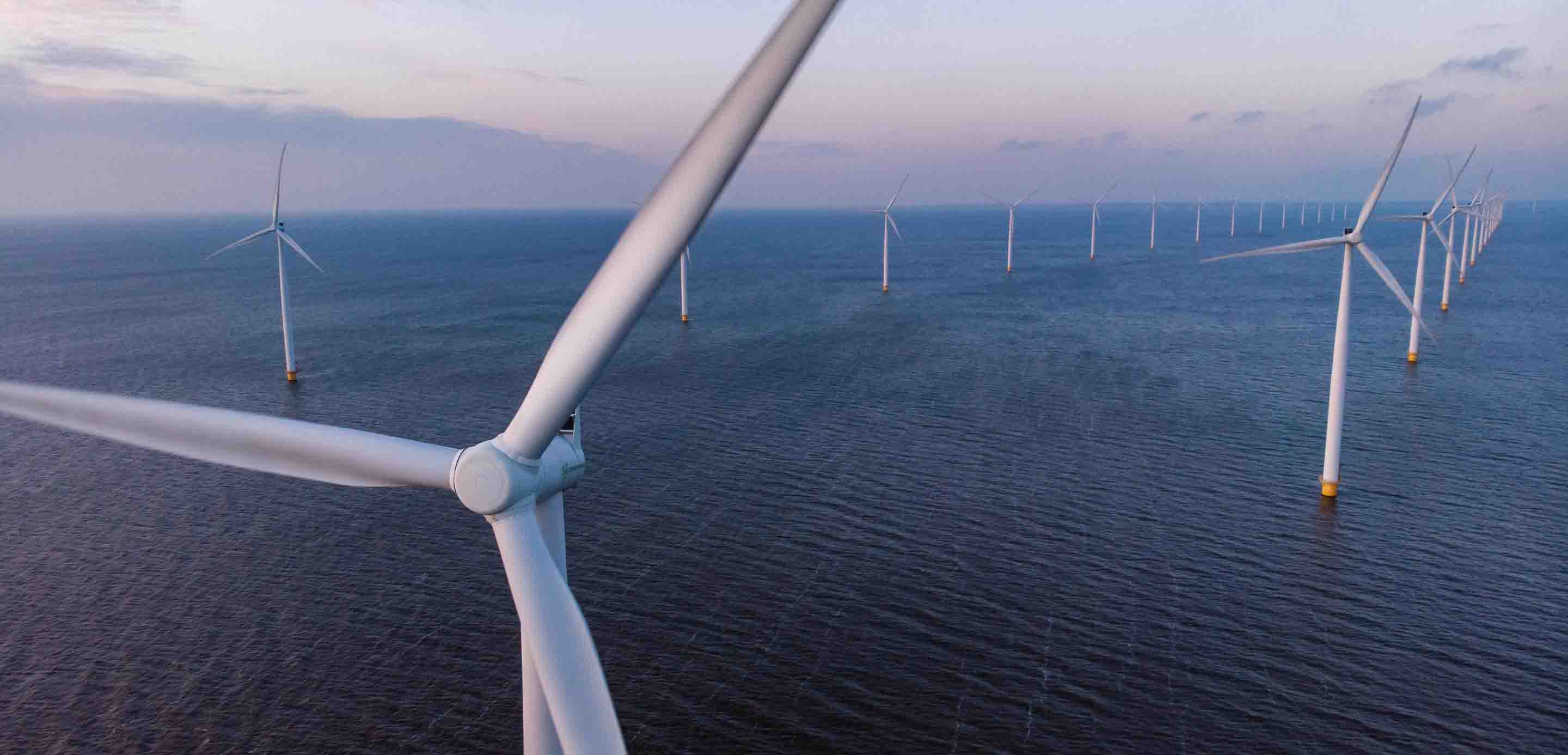- Article

- Global Research
- Energy transition
- Understand ESG
- General Research Insights
The UK's road to net zero: Decarbonising power
- We think the UK’s legally binding target of fully decarbonising its power system by 2035 is realistic
- Our modelling suggests the UK’s use of renewables is set to increase dramatically, reaching 80% by 2030
- But there remains a broad consensus on the need to cut emissions
Ignore the noise. We think the UK’s legally binding target of fully decarbonising its power system by 2035 is realistic. Our modelling suggests the UK’s use of renewables is set to increase dramatically, rising from around 40% of supply today to 80% by 2030.
Yes, there has been debate on the best path to reach net zero. But there remains a broad consensus on the need to cut emissions, and on the role of a decarbonised power system as essential enabler.
c.40%
Share of renewables (including biomass) in the UK power mix, 2022
80%
Share of renewables in the UK power mix, 2030 (HSBC forecast)
There is a strong track record to build on. UK Green House Gas (GHG) emissions fell 47% between 1990 and 2021 with the country comfortably reaching its previous carbon budgets. The evolution from carbon-intensive, coal-hungry (65% of electricity supply in 1990) power generation into a much cleaner system has been instrumental.
We also continue to see positive policy momentum. The government recently approved measures to speed up the build out of critical electricity networks, for example, and committed to improving the offshore wind auction process. Further policy action will be essential, however.
Offshore wind plays a key part in the UK’s plans. Relatively shallow and accessible waters, combined with some of the windiest conditions in the world, makes the UK a naturally suitable site for offshore wind. Capacity has grown from 3GW in 2012 to just under 14GW in 2022 with offshore wind now producing around 14% of the country’s total power needs. Indeed, the UK generates more power from offshore turbines than any other country except China.
c.14GW
UK offshore wind capacity in 2022, up from 3GW in 2012
2nd
The UK’s offshore capacity is the highest in the world, after China
Offshore has faced tough challenges recently, but these are addressable. Amid high inflation, project costs have risen 30-40% over the last three years. Some of these cost pressures may now be abating, with commodities such as steel now off their highs. A government auction in 2023 attracted no offshore wind bids as prices offered to developers were too low, yet early indications suggest that prices for next year’s auction will be considerably higher. Ultimately, we think higher subsidies and changes to auction frameworks will be needed to meet the UK target of 50GW offshore wind by 2030.
A larger, smarter, and more flexible grid is also vital. The new renewable facilities being built today need new connections to be plugged into electricity networks, which will be the “green backbone” of a decarbonised system. Better networks would also minimise grid congestion costs and keep bills down for customers. Achieving this requires a big step up in investment. The electricity system operator (ESO) has said it aims to deliver up to GBP54bn in network investments by 2030, around double the level of investment in the previous decade.
Alongside investment, policy reform is needed. A recent review led by Nick Winser, the UK's Electricity Networks Commissioner, points to lengthy timelines in building transmission infrastructure, exacerbated by poor planning and skills shortages. The review recommends a more strategic and co-ordinated approach to network planning. In addition, investing in demand flexibility, smart systems and energy storage facilities could reduce the need for new transmission investment – and help the UK make further progress on the road to net zero.
Would you like to find out more? In the full note**, we examine a broader range of topics – including nuclear power, carbon prices, onshore renewables, flexible generation, and climate policy – as well as giving our views on a number of UK and European utility companies. Please note, you must be a subscriber to HSBC Global Research to access the full note.
To learn more about HSBC Global Research and how to become a subscriber, email us at askresearch@hsbc.com
* Employed by a non-US affiliate of HSBC Securities (USA) Inc, and is not registered/ qualified pursuant to FINRA regulations
**Please note that by clicking on this link you are leaving the HSBC Global Commercial Banking Website, therefore please be aware that the external site policies will differ from our website terms and conditions and privacy policy. The next site will open in a new browser window or tab.


